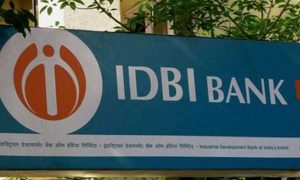Discounts may have been scaled down as the e-commerce market matures and the government looks out for alleged malpractices.
Radhika Subramanium made umpteen trips to the shiny black Bosch mixer-grinder on her phone in the last few weeks. She put it in her shopping cart and waited for the festive season sale to begin, hoping to get a good deal. At the end of the day, who doesn’t want to save a few extra bucks?
But, on October 3, the big day when e-commerce giants Amazon and Flipkart locked horns and launched The Great Indian Festival and Big Billion Days, Subramaniam was sorely disappointed. Her cart barely showed any discount. She bought the appliance anyway because it was needed, but her excitement was gone.
It was largely the same story for Vaibhav Jaiswal. His Boat headphones didn’t even fetch a Rs 200 discount.
Revati Krishna, in fact, checked out with zero discount on the sit-and-bounce ball she had picked up for her nephew.
Subramanium, Jaiswal and Krishna are among hundreds of Indians who realised that e-commerce sales no longer offer the lucrative discounts they used to, except for select products such as mobile phones.
On the average, 30 percent of the products sold across high-ticket categories such as refrigerators, air-conditioners and laptops on Amazon and Flipkart had no discount during their week-long festive sale season, according to a study by a data analytics company.
Higher prices
Interestingly, 8-11 percent of the products across categories such as washing machines, microwave ovens and laptops even showed higher prices during the sale across the two platforms.
The price comparisons were made with rates displayed on October 1, the last business-as-usual day before the sale started.
The data was compiled by Bengaluru-based digital commerce analytics platform DataWeave, which counts Japanese ad-tech firm FreakOut Group and domestic venture capital firm Blume Ventures among its investors. The data was shared exclusively with Moneycontrol.
The discounts were lean even on lower-priced products. Amazon dangled a 6.4 percent discount on air-conditioners priced at Rs 33,500-34,000 during the sale, while Flipkart offered barely a 5 percent discount, according to the data.
This is a far cry from discounts in the 60-70 percent range that used to be advertised across electronics and appliances categories on online marketplaces.
For this analysis, DataWeave trawled the first five pages of the electronics category, which houses products, including air-conditioners, cameras, headphones, laptops, microwave ovens, refrigerators, smart televisions, smart watches and washing machines. The firm scanned 1,184 products.
Gone are the days when discounts were offered for habit forming. According to experts, with the markets maturing, companies no longer fancy hoarding deal hunters.
“As people have got used to buying online, the companies have decided to focus on convenience rather than price,” said Harish HV, managing partner at ECube Investment Advisors. “You won’t even find a significant difference between the price of a product across the two marketplaces Amazon and Flipkart, which have a clear duopoly. It will go on like this unless a big new entrant starts disrupting prices again.”
According to Harish Bijoor, founder of Harish Bijoor Consults Inc, Covid-19 has made e-commerce platforms “marketplaces of choice” for the average customer. “They need less discounts to prop them up,” Bijoor said.
Government scrutiny
Market analysts claim that constant scrutiny by the government of foreign-funded online marketplaces and their business models over the past few months has made them cautious.
“There is also a little bit of wariness when it comes to offering discounts as the government has started asking for data from e-commerce companies on multiple compliances quite aggressively,” pointed out an analyst requesting anonymity.
E-commerce companies are barred from directly or indirectly influencing the prices of products sold on their websites. However, offline traders have protested incessantly against alleged misconduct by e-commerce companies and this has led to increased government scrutiny of online marketplaces.
“The product cost has increased across almost every category and so have the commissions charged by these platforms. A lot of these discounts were partially funded by the marketplaces through third-party tie-ups or via incentivising sellers with low commissions, among other things, earlier. The seller is not going to fund heavy discounts from his pocket,” said a Gurgaon-based watch seller, refusing to be identified.
While Amazon and Flipkart have not shared the gross merchandise value (GMV) clocked during the sales this year, consultancy firm RedSeer Management Consulting estimated the overall industry figure at $4.6 billion.
“During this festive period, sellers have brought thousands of selections and independently provided great deals to delight our customers. In addition, offers from banks and other ecosystem partners allowed customers to get better value through product exchange, no-cost EMIs, instant bank discounts and more,” an Amazon spokesperson said without commenting on specific questions on the decline in discounts.































